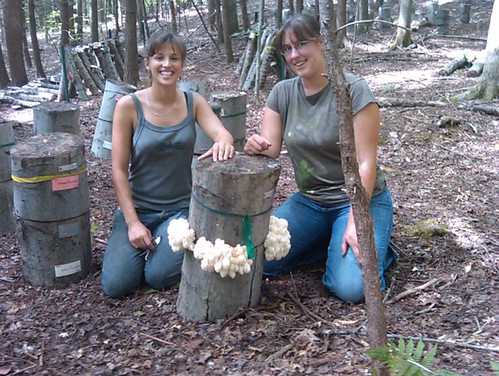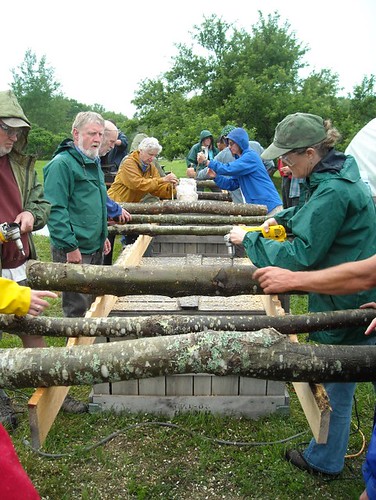
Helping landowners care for their forests and strengthen local economies is an important goal of the U.S. Forest Service, USDA National Agroforestry Center and their partnering organizations.
According to Ken Mudge of Cornell University, any farmer with a woodlot and the drive to diversify should consider forest-cultivated shiitake mushrooms. They are well suited to the increasing demand for locally produced, healthy foods.
With a retail price of $12 to $20 per pound, the demand for shiitakes is considerable throughout the Northeast. As an added benefit, growing mushrooms encourages landowners to learn more about managing their forests.
Using freshly cut logs of oak, beech, sugar maple, hornbeam or musclewood, Mudge says that a landowner with a solid production plan can grow one-half to one pound of mushrooms per log in two to three harvests each year for three to four years. Thus, he believes that forest cultivation of mushrooms not only produces delicious food, but is also one of the most reliably profitable non-timber forest products grown in a forest farming system.
Working with a number of partners, Mudge first held a shiitake inoculation workshop in 2009. Although it was unusually cold and icy, 40 people attended. Encouraged by this interest, Mudge and others applied for and received funding from USDA’s Sustainable Agriculture Research and Education (SARE) program to teach interested landowners how to start commercial-scale shiitake mushroom farming.
Unlike one-off workshops, this effort included hands-on training over two years in both the mechanics of growing shiitake mushrooms and how to start a shiitake farming enterprise. A total of 400 participants from eight states participated in the first year.
Since these initial workshops, a number of additional efforts have come about. Several farmer advisors from this project have gone on to successfully acquire SARE farmer grants to research key questions they confronted in their own shiitake operations. Mudge’s group also obtained USDA funds to diversify forest mushroom production by developing production methods and running on-farm trials of three other types of gourmet mushrooms: Lion’s Mane, Wine Cap and Maitake.
With funding from USDA, these creative scientists and farmers are providing strategic research and outreach to catalyze a forest-grown mushroom industry. The Cornell-lead project is currently working to educate farmers on methods of mushroom cultivation through the Cornell Small Farms Program.



